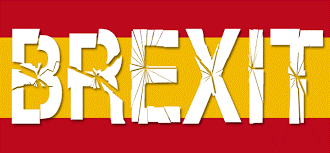Spain has requested a three year transitional period during the final Brexit negotiations to protect the British and Spaniards living in each other’s countries.
Its Government wants the transition to continue from March 2019 (Brexit Day) until a new deal can be forged, but the deadline to be in three years from this point.
The Spanish Government has drawn up an in-house report on the results of bilateral effects Brexit would be in terms of employment, education, justice, trade, healthcare and tourism and mentions the 200,000 Spaniards living and working in the UK and 300,000 British Nationals living in Spain.
These results will be brought up at the next Council of Europe’s meeting on December 14/15 and Foreign affairs minister Alfonso Dastis says he ‘welcomes’ the recent developments on Brexit in which UK Prime Minister Theresa May has agreed to ‘retain citizens’ rights, settled on a sum payable to the EU in respect of Britain’s liabilities, and a ‘soft border’ between Northern Ireland and the Republic of Ireland. But Dastis says Spain still has a series of objectives that it needs to negotiate with the UK which includes a request from Spain for the current harmony to remain at least until the end of 2020 so not to effect either nationals living in Britain or Spain.
“The main priority right now is citizens rights in both countries during Brexit negotiations” says Dastis. “We will ensure that any deal will guarantee certainty and legal security for people and businesses.
Alfonso Dastis also says he wants to see an agreement that retains ‘in full’ the free movement of people, which will also include streamlined regulations covering different countries Social Security systems – ensuring for example that Brits in Spain and the Spaniards in Britain will be entitled to claim on all their pension entitlements from every EU country they have worked in.
Spain would like to see both set of migrants to be able to ‘enjoy the same free movement rights that they do at present’ while Britain remains in the Union, including allowing Spaniards working and moving to UK and the Brits to move to Spain to work or retire.
Spain would also like to retain the current trade agreements until a new one is in place that is ‘at least as strong’ as the CETA agreement or the EU trade deal with Canada.
The Spanish President Mariano Rajoy has again stressed that the UK is ‘very important to Spain’ during his recent meetings at 10 Downing Street with Mrs May and gave various figures suggesting how Britain is the No.1 country Spain invests in and is the second-largest investor in Spain. “Spain would and is seeking to negotiate with the UK on an agreement which does not replace European products from those from third world countries where Britain might have a more advantageous trading conditions,” said Rajoy. Although such an agreement will not please Brexiteers and could be rejected by the UK.
Rajoy mentioned the 500,000 Brits living in Spain and that 18 million Brits visit Spain every year – the equivalent of 40% of Spain’s population – although up-dated figures have placed the number of UK migrants in Spain at 300,000 due to the worry of Brexit. “This means that we have had a very intense relationship with the UK for a long time, and it’s crucial we keep it,” said Rajoy.
He would like to ensure that his government will not ask British tourists to have a visa to enter Spain, and will still be entitled to emergency healthcare via their EHICS, and that Britons living in the country will still have their healthcare cover and pensions guaranteed, but this must be a reciprocal agreement with the UK.
EU laws and the European Court of Justice would still be applied to both sets of expats during the transitional period says the Spanish Government, but rejects ‘the British intension of resolving mercantile disputes through international arbitration’.
The excellent legal security that we have must be guaranteed for business and people in future bilateral relations, and need to remain so, says Rajoy, independently of the ‘need to guarantee the integrity of the single market’.
Brits could hold the same rights as they do now as EU citizens says the Ministry of Interior and would like it to be split into two to separate issues with the two countries gradually agreeing certain rights for their citizens and the second part, the ministry would ‘work out what type of documentation to issue’ for British residents and ‘how to regulate their entry, refusal of entry or deportation’.
Spain also wants to retain their fishing quotas in British waters, to retain current conditions for Spaniards working as teachers and for university fees for Spaniards not to increase, with recognition of qualifications not to change during the transitional period.



Recent Comments